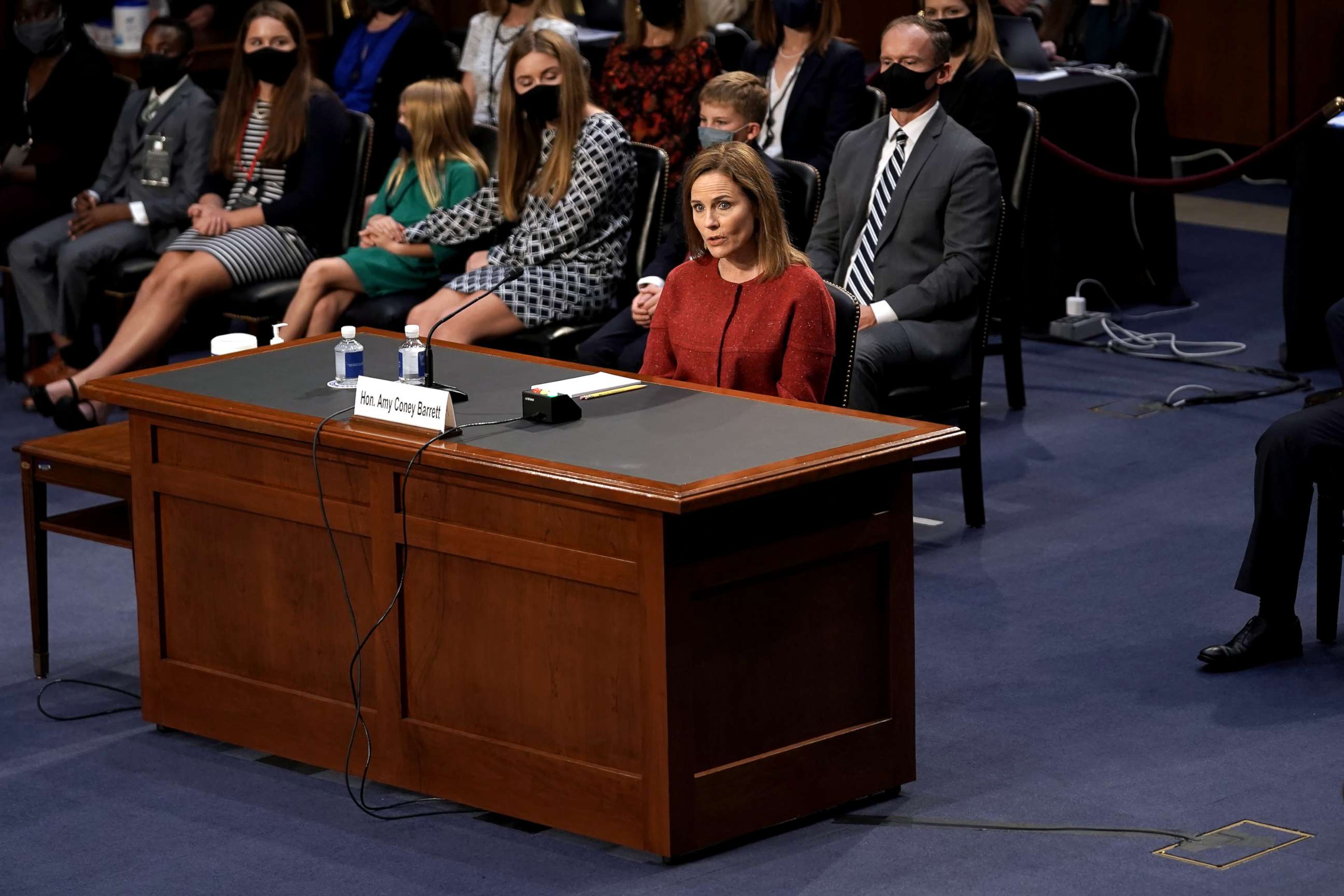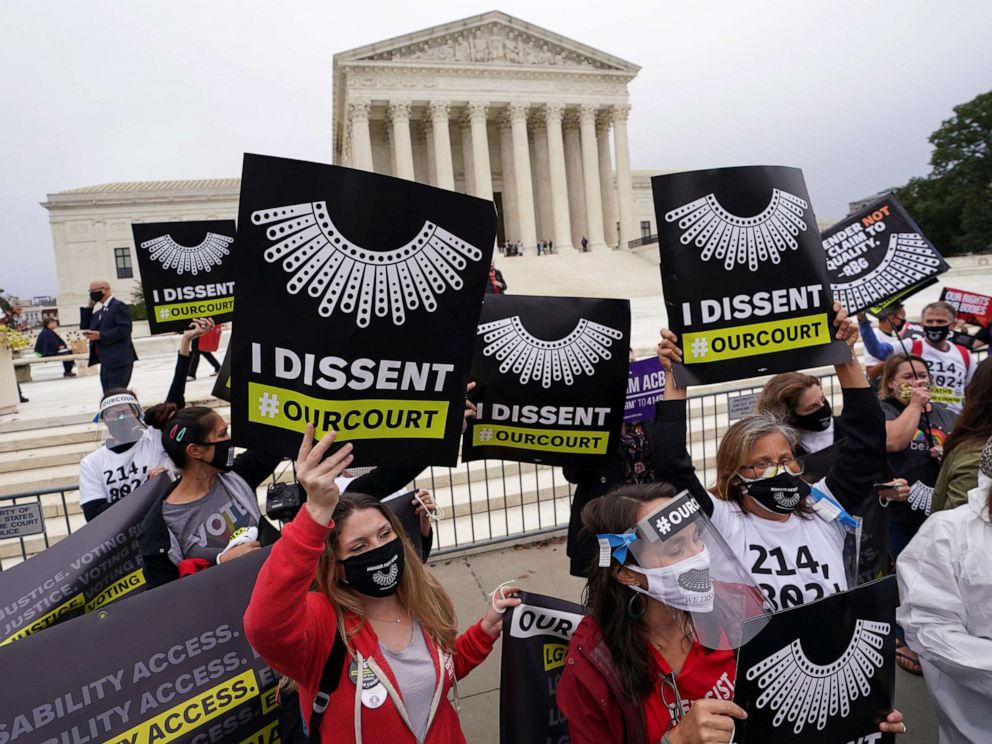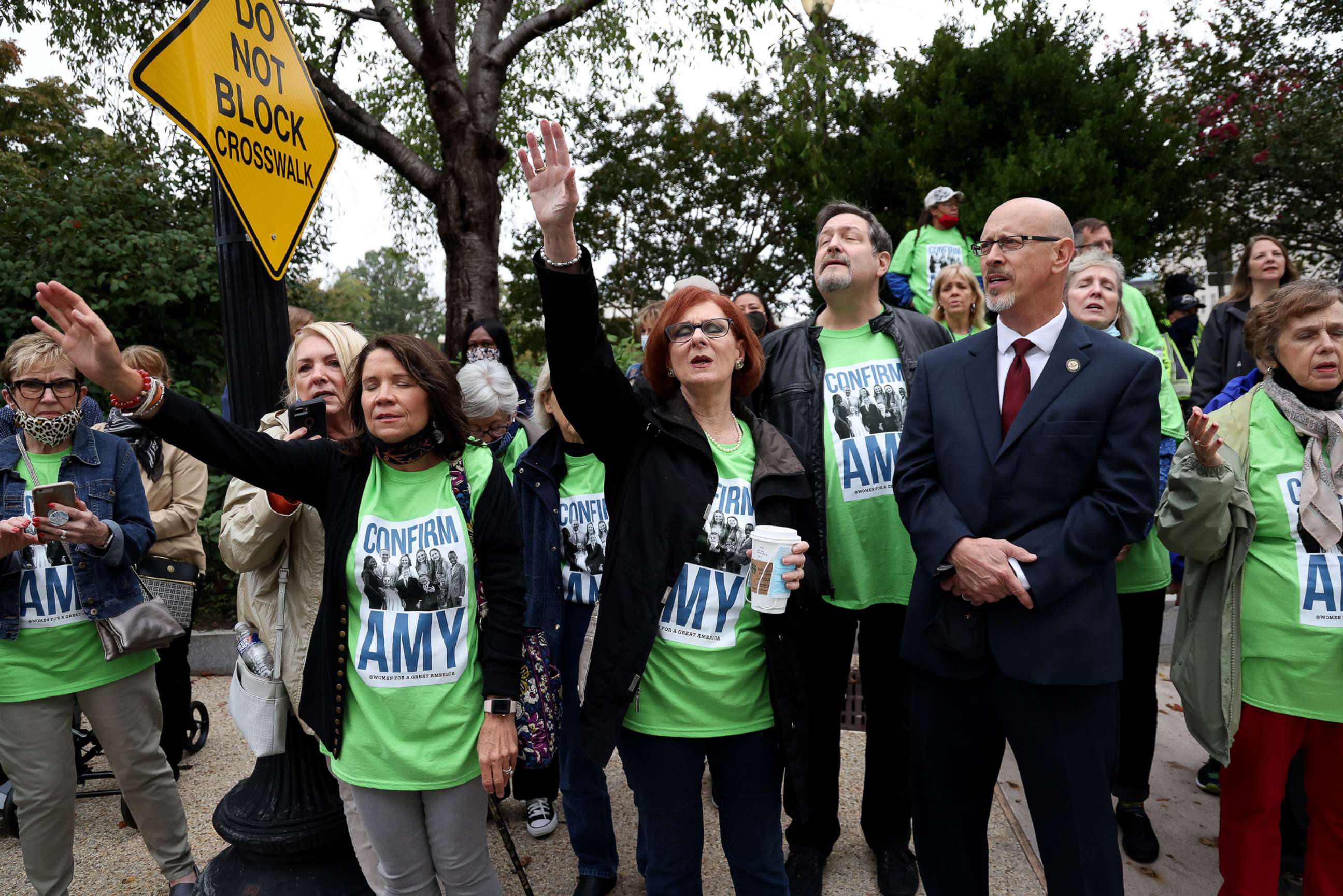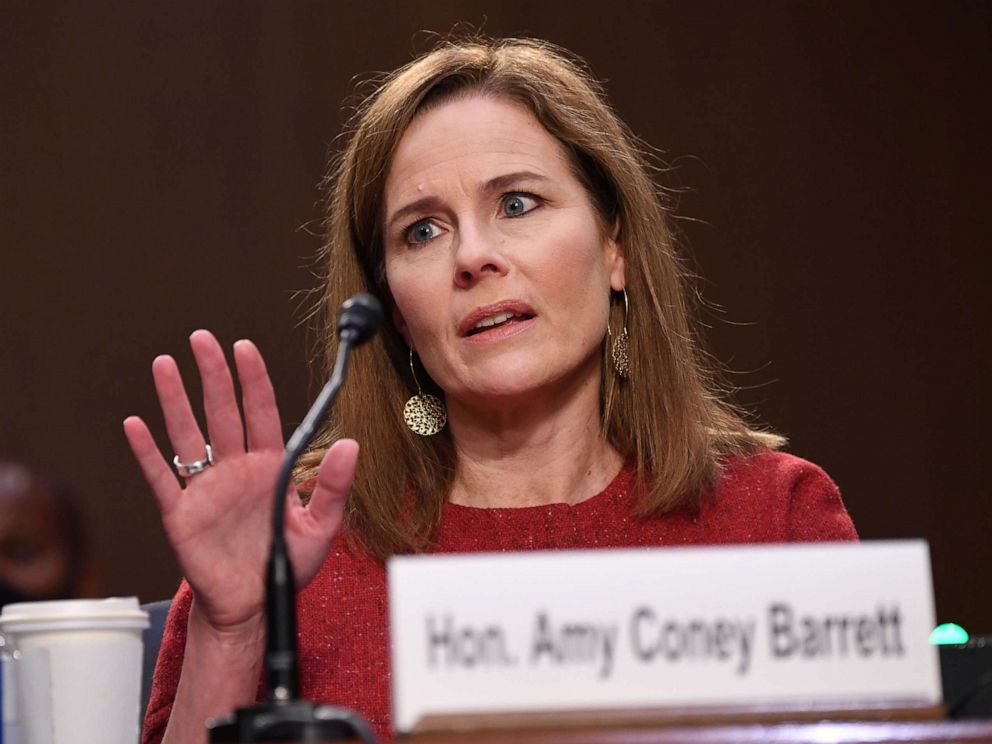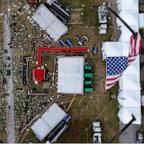Barrett: Won't be used as a 'pawn to decide this election,' but declines to commit to recusal
Sen. Chris Coons, D-Del., noting what President Trump has said about needing nine justices on the Supreme Court by the November election to decide any election-related disputes, asked Barrett if she will commit to recusing herself from those cases.
"Given what President Trump said, given the rest of the context of this confirmation, will you commit to recusing yourself from any case arising from a dispute in the presidential election results three weeks from now?" Coons asked.
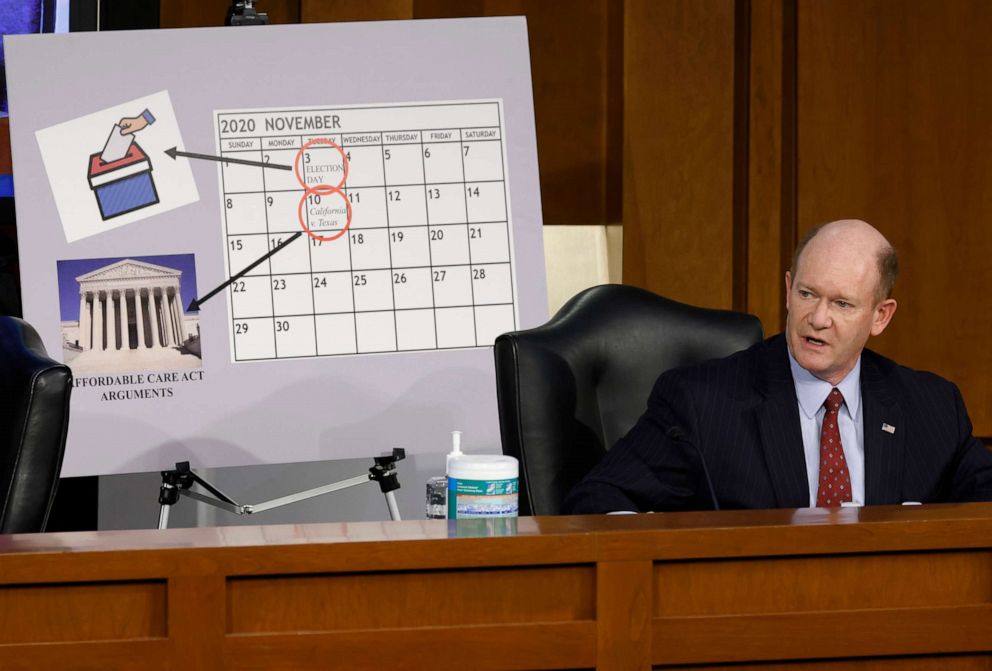
"Thank you for giving me the opportunity to clarify this," Barrett began. "And I want to be very clear for the record and to all members of this committee that no matter what anyone else may think or expect, I have not committed or signaled, never even written -- I've had a couple of opinions that have been around this law, but I haven't even written anything that I would think anybody could reasonably say this is how she might resolve an election dispute."
"I would consider it, and I certainly hope that all members of the committee have more confidence in my integrity then to think that I would allow myself to be used as a pawn to decide this election for the American people," Barrett continued.
"That would be on the question of actual bias, and you asked about the appearance of bias and you're right that the statute does require a justice or judge to recuse if there is an appearance of bias. And what I will commit to every member of this committee, to the rest of the Senate and to the American people is that I will consider all factors that are relevant to that question that requires recusal when there's an appearance of bias," she said.
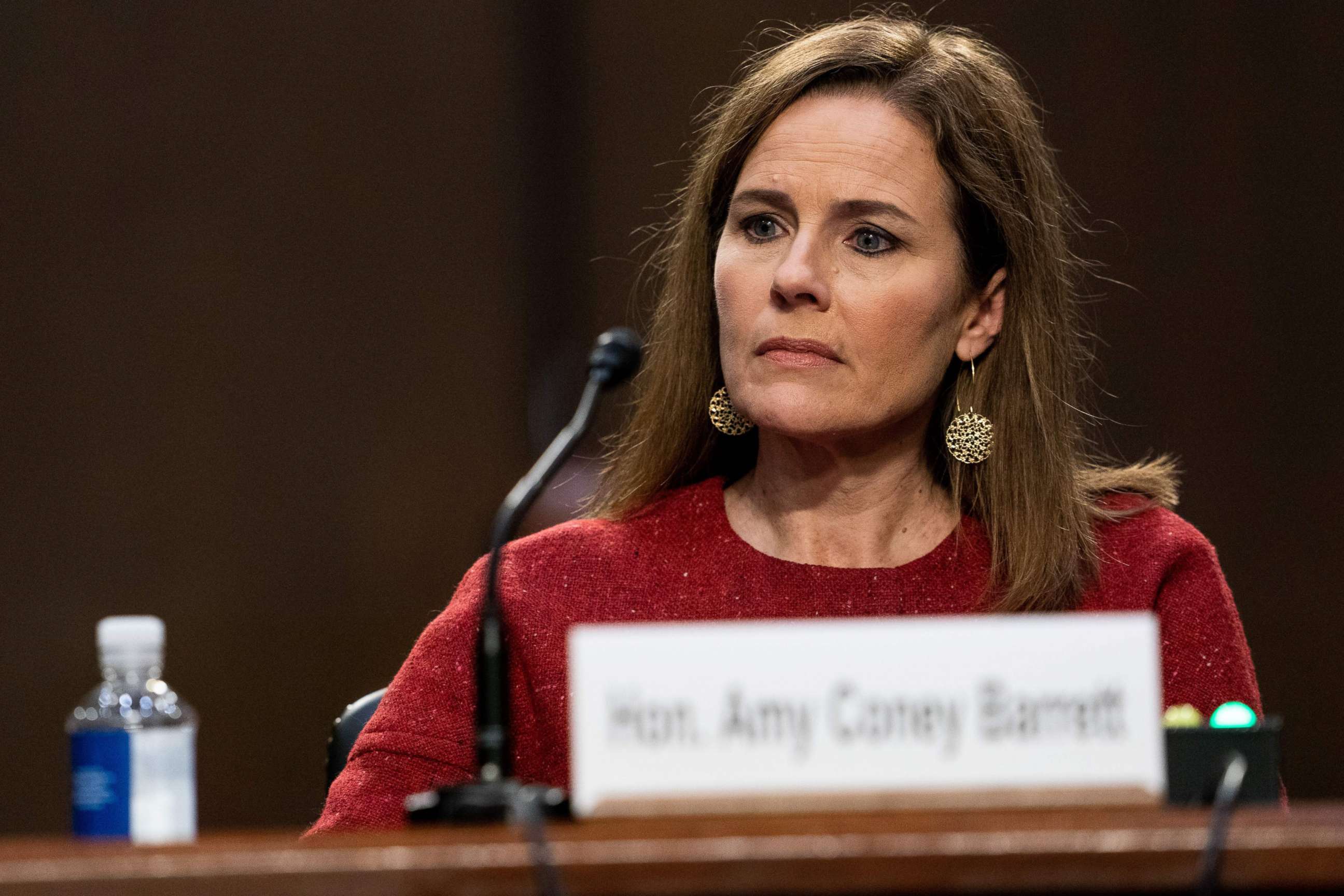
Barrett went on to say she would discuss that with the other justices were a dispute to arise.
"Justice Ginsburg said it is always done with consultation of the other justices. So, I promise you that if I were confirmed and if an election dispute arises, both of which are if, that I would very seriously undertake that process and consider every relevant factor. I can't commit to you right now for reasons that we've talked about before, but I do ensure you of my integrity and that I would take that question very seriously," she said.
